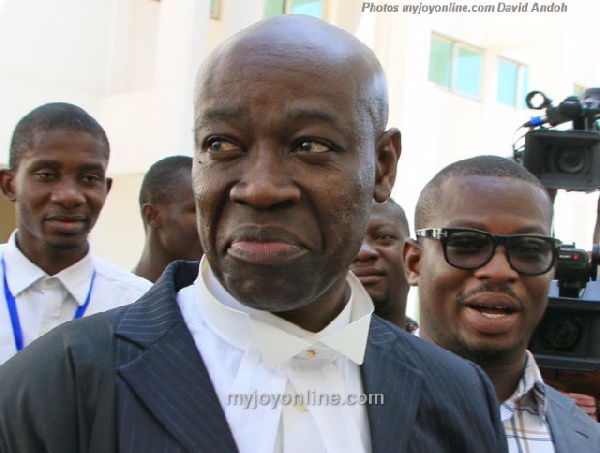
Renowned lawyer and law lecturer Thaddeus Sory has cautioned against treating the age of a democracy as proof of its perfection, arguing that even constitutions centuries old still contain serious flaws.
Speaking on JoyNews’ PM Express on October 20, Mr. Sory said societies must focus on justice and accountability, not longevity.
“There are 200-year-old constitutions which have the most atrocious provisions,” he said.
“There’s a constitution of a so-called democracy which has an electoral college that can make a president win an election not with the majority of votes but with a minority — and it’s still sitting there.”
He stressed that democracy is not about age but about integrity in how power is used and checked.
“There’s a country in which citizens can be deported, and it’s the stellar example of democracy,” he added, warning that constitutional age alone does not guarantee fairness.
On the issue of judicial accountability, Mr. Sory defended the principle that the public must play a central role in assessing misconduct in high offices.
He explained that “justice emanates from the people,” and, therefore, the people’s perception of what constitutes misconduct must guide disciplinary actions.
He argued that terms like “stated misbehaviour” and “incompetence” are best interpreted through public standards, not strict codified rules.
“If the Chief Justice gets drunk whilst in office, that’s stated misbehaviour,” he said. “If she decides that her family members can benefit from benefits that her own rulings say others are not entitled to, that’s misbehavior too.”
According to him, such standards cannot all be spelled out in a constitution. “If you make it too ordinary and regulate every matter, it will look like a very ordinary document, and people won’t respect it,” he noted.
Mr. Sory insisted that disciplinary committees handling such cases should be made up entirely of laypersons, since justice ultimately belongs to the public.
“We those involved in the justice system judge ordinary men from whom justice emanates. If it affects us, let them also judge us,” he stated.
He maintained that case-by-case judgment of misconduct is not arbitrary. “It has predictability,” he said.
“If the head of an institution takes a decision that reverses justice and the public says they don’t like that, then accountability has spoken.”
Citing past examples, he said society’s moral compass, not procedural rigidity, should guide justice.
“Charlotte Osei’s crime was that she saved Ghana GH¢15 million,” he said. “She was removed because she canceled a contract that lacked value for money.
“Procurement officials even testified there was no breach, but she was still taken out. If that is what society wants, so be it.”
Mr. Sory concluded that accountability to the people must remain the cornerstone of governance.
“Everybody is accountable to society,” he said. “If they say they don’t like your style, you must answer to them.”
DISCLAIMER: The Views, Comments, Opinions, Contributions and Statements made by Readers and Contributors on this platform do not necessarily represent the views or policy of Multimedia Group Limited.
DISCLAIMER: The Views, Comments, Opinions, Contributions and Statements made by Readers and Contributors on this platform do not necessarily represent the views or policy of Multimedia Group Limited.
Source: myjoyonline.com










